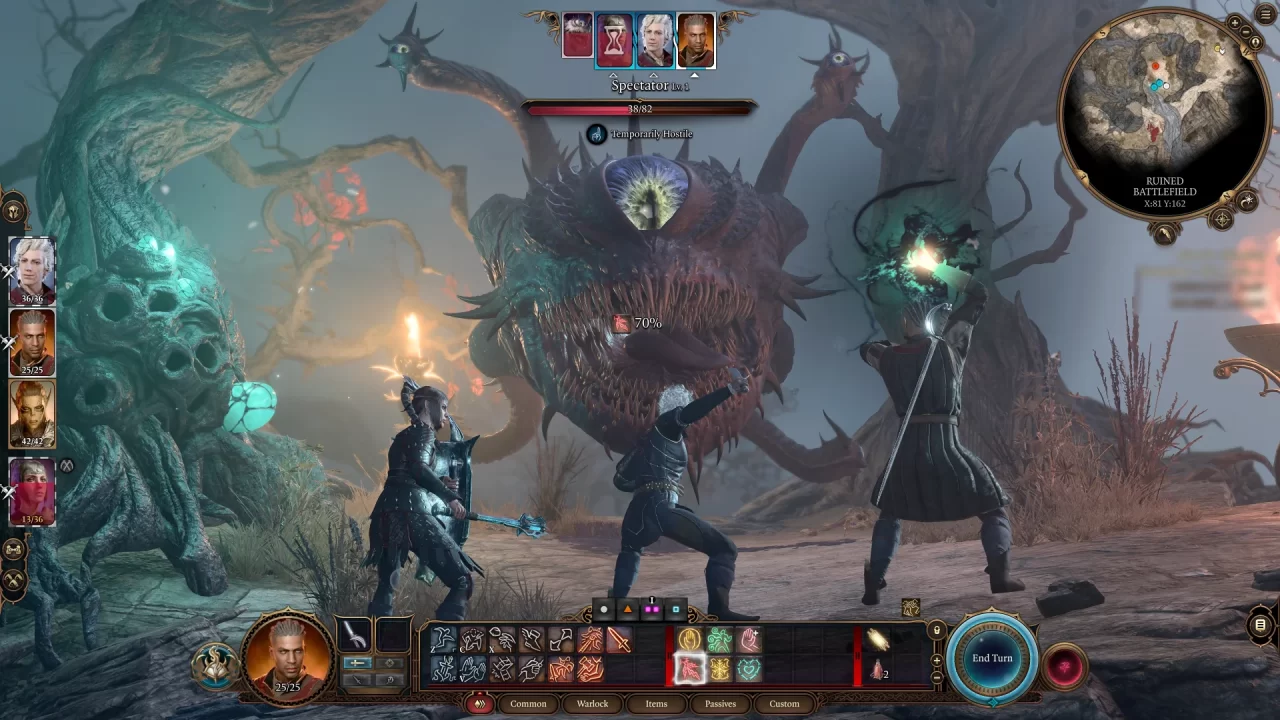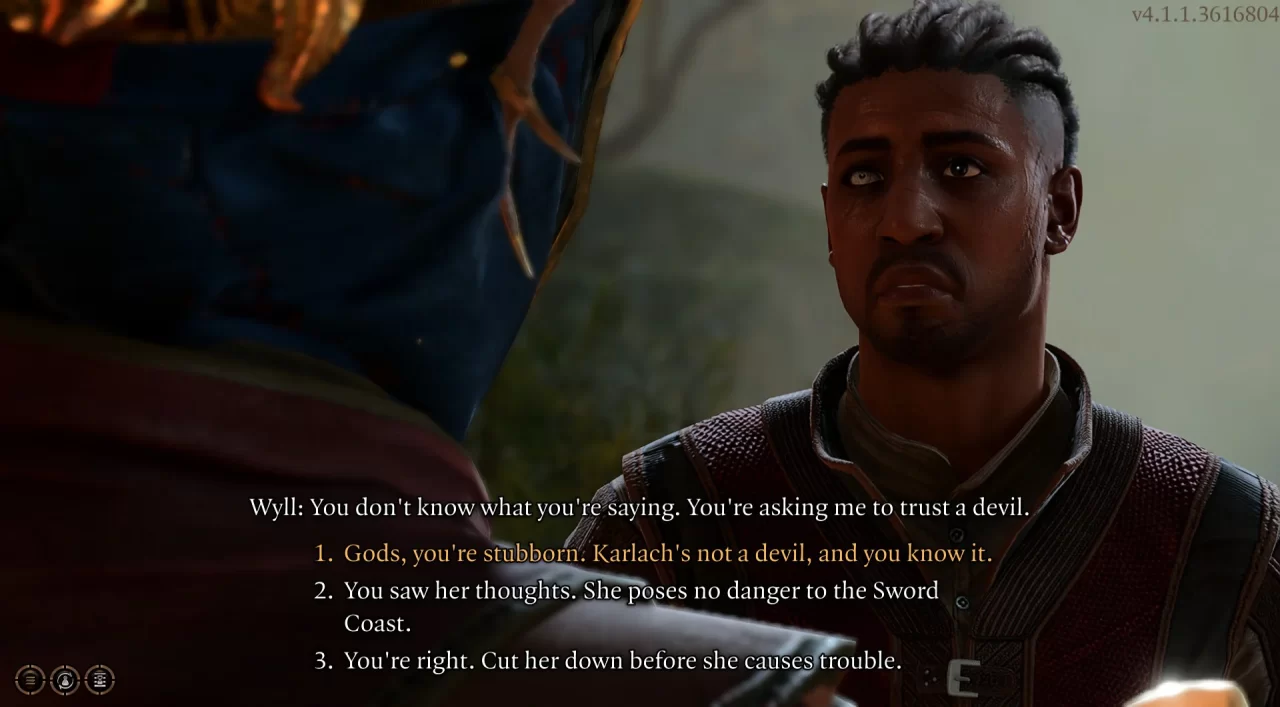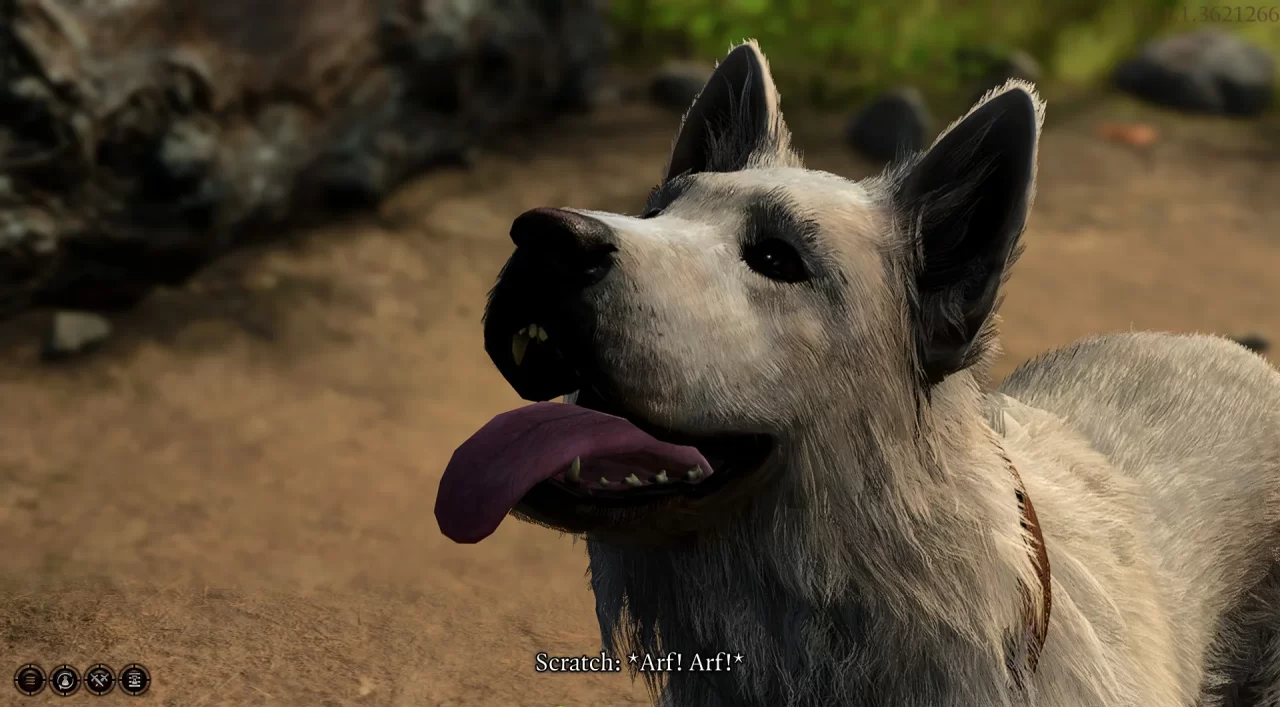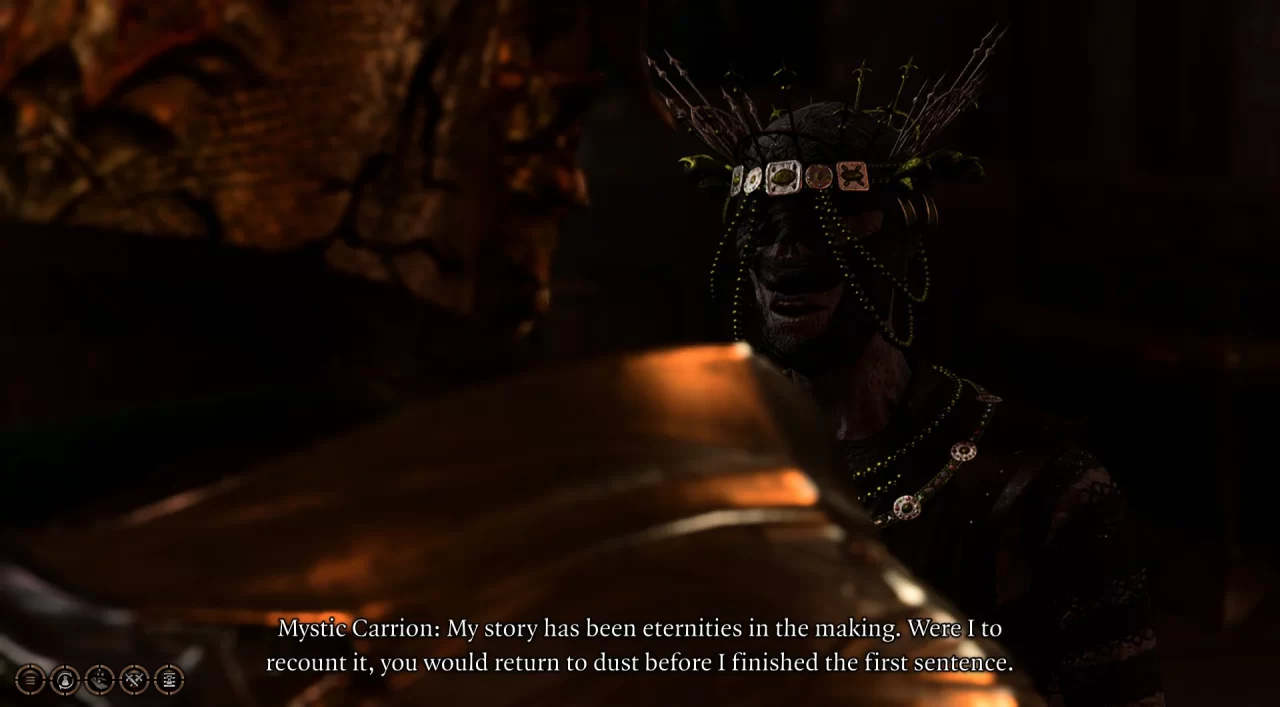From the beginning, Baldur’s Gate III hands you control of your destiny and then makes you question whether your choices were ever your own or if you were under someone else’s control the whole time. By the end, even with all the choices behind me, I clearly couldn’t save everyone. Possibly not anyone. Maybe not even myself. Those choices definitely mattered, but the complexities of life dictate that you can never control every aspect of it. I was a savior, but at an incredible cost. Anyway, does my pontificating matter, or is it time to roll up a new character and see if I can affect change?
From this unique start, you set out on a strange journey with a parasite hitchhiking a ride inside your head, threatening to turn you into a mind flayer. Your character used to be an Adventurer until they took a worm to the brain. For a game promising freedom of choice, this could have presented a problem by forcing you into a narrow narrative tunnel and narrowing the possibilities for role-playing. Thankfully, this is just the start of the game. You’re in an odd position, as you’re not so much a hero but merely a person desperately searching for a cure to a disease that may have none. As surprising as waking up with a tadpole in your noggin would be, Baldur’s Gate III spins off in even stranger directions and unfurls into a wild adventure, letting you dictate the direction, and oh, what directions you can dictate.
The story takes an unusual structure, setting a destination with no straight lines to get there. You’re mostly left on your own to wander and decide what to stumble into next, with the vague descriptions for how to proceed in the main quest feeling as useless as the 10 AC armor you find on so many dead enemies. Baldur’s Gate III redefines the definition of sidequests. It’s like a funnel of rabbit trails that you bounce all over until, finally, you fall out the bottom. If you get attached to the people of a village and want to help them out, there’s a myriad of ways to solve their problems, including wiping out the village entirely, which I found myself doing accidentally more than I’d have liked to. Goodbye, problems! The odd structure means that whenever you do something meaningful, the rest of the game adjusts to whatever you did. You are likely to meet any characters you help out again later, and they have opinions about how well you “helped” them.
Larian dug into the weirder side of D&D, dragging out the most imaginative creatures, characters, and locations, keeping you wrapped in a fever dream-like atmosphere. The main quest is so off-kilter that I often hadn’t gotten over the last weird thing that happened before some other strangeness was sloppily plopped onto my plate. But Baldur’s Gate III also raised a sense of awe and wonder I hadn’t felt in a fantasy setting in a long time.
Baldur’s Gate III presents you with many choices, but they rarely seem to put you in a more advantageous position. Usually, your options are all equally bad. Whatever direction you take, you’re going to upset someone you don’t want to or pay a price steeper than you’d like. At one point, at least five powerful entities tried to court my allegiance, and I hated them all. Typically in D&D, you’re at the mercy of the dice in just about anything you do, and that’s also true in Baldur’s Gate III. Conversations can be as perilous as combat. Even if you’re great at wheelin’ and dealin’ or if you let the uber-charismatic warlock Wyll do the talking for you, there’s always the possibility you’ll roll a 1 when you’re trying to persuade those goblins that the Absolute put you in charge of them. What will happen that you didn’t intend? Will your decisions alter the course of entire groups? Yes. Will you kill entire villages of people unwittingly? Probably. And your party members? Possibly. When you finish Baldur’s Gate III, will you immediately want to start over and see what happens if you make different decisions? I sure did.
You’re motivated to keep those party members alive because Baldur’s Gate III’s characters and the mind-bogglingly incomprehensible predicaments they get themselves into are fascinating. I had concerns about how keeping all of them around might turn out, as some have dark desires. As I said earlier, not all of them made it to the end of my journey. But they’re all so endearing that even when they expressed goals that made them sound more Evil than Neutral, I still wanted to see them claim freedom over their afflictions or feel actualized by achieving their dreams, no matter how disturbing. Finishing their stories is simultaneously affirming and demoralizing in bittersweet beauty.
Don’t forget to take the time and settle down by romancing one of your prospective partners. In Baldur’s Gate III, a romantic relationship is a journey itself, and it doesn’t end once you’re “official,” but it keeps developing as you make your way through the story. Just as everything else, romance can go horribly wrong. And you can pet the dog, play fetch with him and even talk to him, though good luck passing the persuasion roll to pet the cats. Playing around with the Speak with Animals and Speak with Dead spells can nearly be its own minigame.
You’ve already made a ton of decisions you weren’t even aware of while creating your character. How people perceive you could be determined entirely by which of the 11 races you choose. There are so many instances with class- or race-specific responses that the story (and possibly each subsequent run) can meld into a highly personal experience tailored to each individual player. If you ever were overwhelmed by the number of options in a tactical RPG, Baldur’s Gate III presents a similar amount of depth in crafting your combat skills with the breadth of the versatile 5th Edition ruleset at your disposal. Magic users have dozens of spells they can learn. Even the fighter types have plenty of options for dispatching enemies. Whenever you pick up a new spell or ability, it’s exciting to try it out on the next foes unfortunate enough to run into you. Was learning Tasha’s Hideous Laughter helpful? Not greatly, but I enjoyed seeing my enemies be pinned to the ground by the giggles.
There’s such a depth to the combat that you can lose yourself in that aspect of the game alone. If you’ve played Divinity: Original Sin or its sequel, you’re at home with Baldur Gate III’s turn-based combat based on positioning and using the environment to your advantage. Grease the floor, watch everyone slip and fall, and then set it on fire. Collapse the wooden scaffolding a group of enemies are perched on. Pick up enemies and throw them at other enemies. There’s a lot to play around with. This is a proper emulation of D&D‘s combat converted to a video game, with a DM possessing the imagination to conjure up some elaborate settings.

While extolling Baldur’s Gate III with superlatives is entirely warranted, I have to nitpick because nothing can ever be perfect. Though the earlier portions are quite polished, the deeper you dig, the more bugs crop up. Combat can drag if you’re faced with a small army of enemies (as is common) and the AI sometimes freezes up. A few debilitating instances make completing certain quests, including some important ones, impossible. Also, the third part of the game didn’t grab me like the first two did. The villains are intriguing, but they come and go too quickly before stopping to await a final confrontation once you’re done messing around with everything else. On the other hand, my complaint may just be a testament to how amazing the first two parts are.
From the characters to the environments, Faerûn feels like it could be a real place because the visuals are so detailed and intricate. Much love and care went into every aspect of the characters, especially your party members, but also each NPC, enemy, and major antagonist, from their distinctive appearance to the tremendous voice acting and motion capture work. Their appearances and animations make the game as lively as anything ever could be. The chewy dialogue and wild character backstories give the world the feeling of a classic fantasy novel. The massive environments are extraordinarily detailed and feel like lived-in places, and you can almost smell the mustiness of a library filled with ancient tomes. The Underdark is especially striking for how strange it feels and the claustrophobia of constant darkness.
Though the music is in the vein of fantasy games that came before, like Dragon Age, it’s also distinctively individual. The many variations on the main theme dependent on the current situation have a surprising range. One of my favorite moments was finding a music box that plays its own quieter version of the main theme. And you’d do well to learn how to play one of the many musical instruments available to unlock some jaunty jigs that will get the attention of any passers-by. That’s worth a few gold coins!
There are good games and great games, and then there are games that change the game entirely. Baldur’s Gate III is that rare case that charts its own route, building on the best of what came before it and breaking new ground. With how responsive the game is to the specifics of your created character, it could be explored virtually forever with endless new stuff to discover tucked into millions of little corners. The world is intricate and wonderous enough to want to live in it, and the characters are so intriguing that you cherish every conversation and want to save them all from themselves (and good luck doing that!). It’s an explosion of the imagination so powerful that it’s unthinkable that Larian was able to fit it all into one game, but they did. So, gather your party and venture forth!






